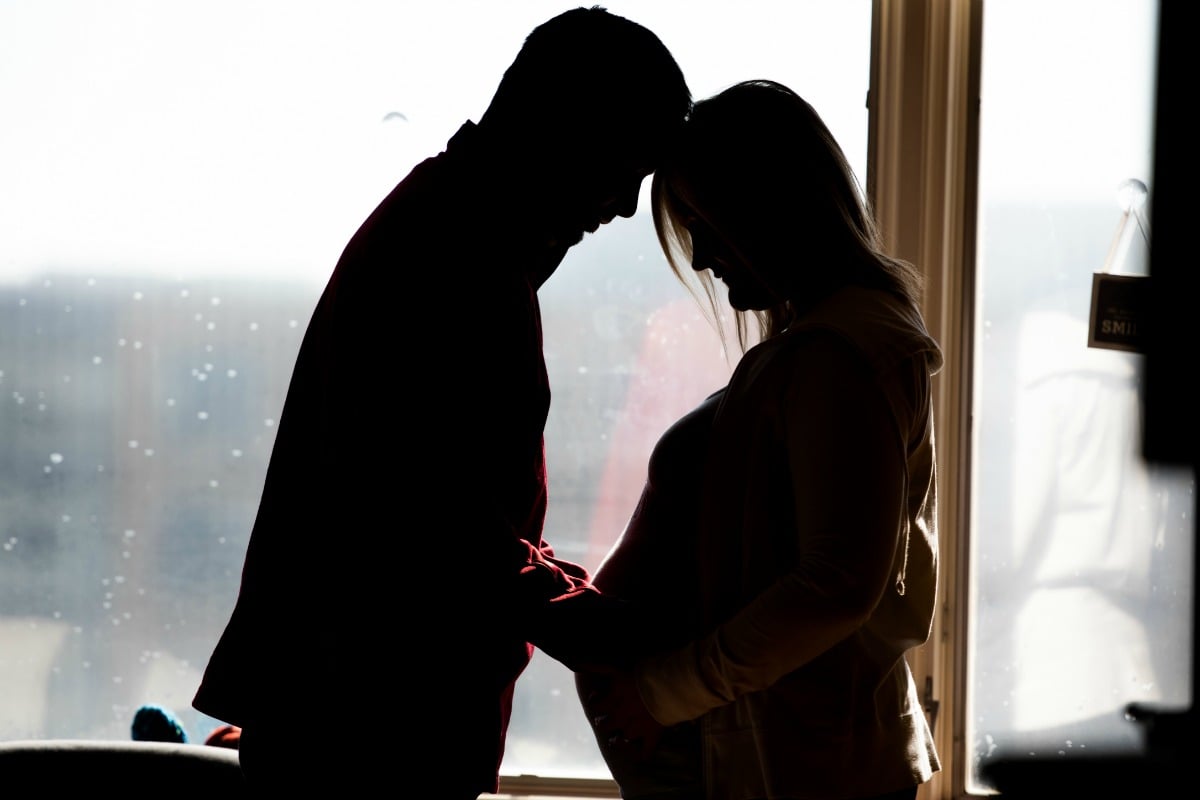
This post deals with miscarriage and might be triggering for some readers.
The ultrasound technician wiped off the wand, handed me a box of wet wipes, and apologised once more before leaving my husband and me alone in the darkened room. I cleaned up as best I could, pulled on my underwear and pants over the sticky goop that never quite wipes clean, and went to the chair where my husband was seated. I draped my arms around his shoulders, resting my forehead on the crown of his head.
My tears fell into his hair. “I can’t do this again,” I said, and that was that.
Watch: Tina Arena speaks to Mia Freedman about her miscarriage on No Filter. Post continues below.
We’d resisted making a firm decision about having more children.
Nine months earlier, our daughters were four and six years old and we still hadn’t decided whether or not we would have more children. My husband wanted one more. I was ambivalent, but as the years passed and the newborn days faded into memory, I became certain I didn’t want to repeat them. I loved my job and I was finally regaining some of my autonomy after so much time serving the children day in and day out.
Some Friday nights, glass of wine in hand as we watched a rare television show together, one of us would ask, “Are we gonna have any more kids?”

